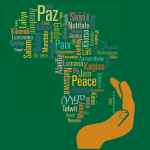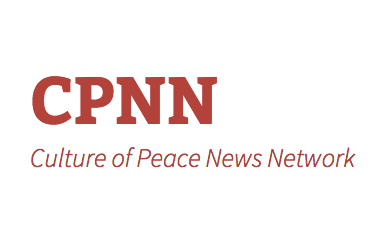Colombia and nuclear disarmament
Two sets of events this month promise progress towards a culture of peace.
In Colombia, the newly-elected President Gustavo Petro promises to re-invigorate the peace process, while at the same time the Colombian Truth Commission has published its long-awaited report.
The election of Petro is the first time in the history of Colombia that a left-wing candidate has been elected President. Petro based his candidature on the promise to complete the peace process by making peace with the ELN guerillas, and to ensure the safety of community leaders and former FARC guerillas. This will not be easy since during the administration of the outgoing President Duque 4,930 leaders were assassinated.
The Colombian Truth Commission has been working since 2018 to clarify the violations that occurred during the armed conflict and to contribute to uniting Colombian society so it can advance towards the construction of a future of peace for all. As expressed by newly-elected President Petro, “The truth cannot be a space for revenge.”
Also in June, two important international meetings took place in the struggle to abolish nuclear weapons.
On 9-10 June scholars and experts met in Ulaanbaatar, Mongolia, to discuss the importance, challenge and prospects for Nuclear-weapon-free zones (NWFZ). The participants congratulated Mongolia on the 30th year of its unprecedented initiative to establish a single-State NWFZ.
More than half of the world is now covered by Nuclear-weapon-free zones, as shown in the world map published with the article from Mongolia.
Then on 21-23 June, the historic first Meeting of States Parties to the Treaty on the Prohibition of Nuclear Weapons met in Vienna and adopted a political declaration and practical action plan that set the course for the implementation of the Treaty and progress towards its goal of the total elimination of nuclear weapons.
CPNN readers may recall that the Treaty was was adopted by a majority of States (122) at the UN on July 7, 2017 (See CPNN bulletin for August 2017) and it entered into force on January 22, 2021 (see CPNN bulletin for February 2021).
The urgency of these initiatives was underlined in the most recent report from SIPRI, the Stockholm International Peace Research Institute. Of the total inventory of an estimated 12 705 nuclear warheads at the start of 2022, about 9440 were in military stockpiles for potential use. Of those, an estimated 3732 warheads were deployed with missiles and aircraft, and around 2000—nearly all of which belonged to Russia or the USA—were kept in a state of high operational alert. SIPRI adds that nuclear arsenals are expected to grow over the coming decade.
The war in Ukraine runs the risk of escalating into a nuclear war. Speaking at the meeting in Vienna, United Nations Secretary-General Antonio Guterres said, “The once unthinkable prospect of nuclear conflict is now back within the realm of possibility”.
Cities have no use for nuclear weapons. Hence the United States Conference of Mayors has called on the U.S. and the other nuclear-armed states to commit to a process leading to the adoption no later than 2030 of a timebound plan for the global elimination of nuclear weapons by 2045. The European Chapter of Mayors for Peace expressed their solidarity with Ukrainian cities and called for a long-term vision of international security that overcomes nuclear deterrence. They attended and supported the Meeting of States Parties to the Treaty on the Prohibition of Nuclear Weapon in Vienna that is mentioned above. Activists in a number of European cities mounted actions to support that meeting.
We conclude with homage to the great peace activist Bruce Kent who passed away at the age of 93 last month in England. One of his last acts was to join a small CND delegation delivering a letter to the Russian Embassy in London, which said: “For the sake of Ukrainian children taking shelter from Russian missiles; for the sake of all those who will die if the situation escalates and for the sake of the millions of us who will perish if the heightened risk of nuclear war turns into a nuclear conflict, we urge your government to halt the attacks, withdraw the troops and withdraw the nuclear threats.”
| DISARMAMENT & SECURITY
Ulaanbaatar Statement on Nuclear-Weapon-Free Zones |
TOLERANCE & SOLIDARITY
Gabon: Training to Prepare Project of Youth as Weavers of Peace |
WOMEN’S EQUALITY
One year driving action for gender equality. One year of Generation Equality
|
FREE FLOW OF INFORMATION
Colombia: What is Gustavo Petro’s campaign proposal for ‘total peace’?
|
| SUSTAINABLE DEVELOPMENT
La Via Campesina calls on States to exit the WTO and to create a new framework based on food sovereignty
|
DEMOCRATIC PARTICIPATION
Algeria: 19th edition of the Mediterranean Games
|
HUMAN RIGHTS
Colombia: Final report of the Truth Commission: an oral and written legacy for the country
|
EDUCATION FOR PEACE
Mexico: First issue of the electronic magazine “Culture of Peace” published by the State Human Rights Commission |









